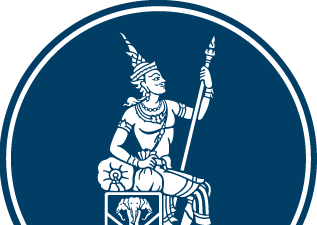Former finance minister Virabongsa Ramangkura has advised the Bank of Thailand to cut its key interest rate to boost economic growth higher than 4 per cent.
“Now is the best time for low interest rates, since savings are larger than investment, and the country has a current-account surplus,” he said.
Virabongsa was a finance minister in a number of governments, including that of General Chavalit Yongchaiyudh, which floated the baht in 1997.
Now a respected economist, he said there were only 50,000 people with bank accounts averaging more than Bt1 million, earning a living on interest rates.
He said the central bank should not worry about inflationary pressure as major economies such as the United States and Europe were slowing down, leading to lower oil demand and lower energy prices.
He also claimed that the strengthening of the baht had been caused by lenders swapping baht debt with US dollar debts to take advantage of lower interest in the United States.
The interest cost of dollar-denominated debts is about 3.5 per cent, while the cost of baht debt is 6 per cent, he told a seminar on Wednesday.
Raising the BOT’s policy interest rate would not curb inflation, but would increase it because of the high cost of borrowing for business, he said.
Higher interest also invites capital inflows that cause the baht to appreciate, and then the central bank has to intervene in the market to weaken the baht, resulting in BOT losses, he said.
Virabongsa predicted that the world economy would not slow down much even if the US and Europe cannot completely solve their economic woes over the next five years. That is because emerging countries such as China, India, Brazil and Russia will drive the global economy, he said.
The new global economic order will benefit Thailand, which is close to these markets, saving logistics costs, he said.
He also agreed with the idea of setting up a sovereign wealth fund. The government could issue bonds and sell them to the central bank. It could sell the bonds for up to US$100 billion (Bt3 trillion) and then repay foreign debts owed by state enterprises and the government, estimated to be about $100 billion, he said.
The sovereign wealth fund would not greatly affect international reserves, which currently stand at $200 billion, he said. Debt worth Bt1.1 trillion owed by the Financial Institutions Development Fund should be transferred back to the BOT, he added.
Deputy Prime Minister Kittiratt Na-Ranong said the government could not ask the central bank to cut its policy interest rate.
He defended the government’s populist rice-subsidy policy as a measure to boost consumption and increase income for farmers and labourers.
Bank of Thailand Governor Prasarn Trairatvoralkul told a seminar yesterday that decisions on the benchmark interest rate were the purview of the Monetary Policy Committee, which is scheduled to meet next on October 19.
Inflationary pressure remains high because of oil prices, continuing expansion of domestic consumption and exports, and high inflation expectations, Prasarn said.
Inflation expectations could affect prices as set by producers and purchasing decisions of consumers, he said.
Currently, there is more threat to growth due to negative factors from foreign countries, especially the United States and Europe, he said. The central bank is following these situations very closely.
“If we let inflation rise, other costs will rise and that could drive interest rates up as well.
“This is because bond buyers will normally require yields higher than the rate of inflation, and that could push the interest rates up. Now, we are trying to prevent rises in long-term interest rates,” Prasarn said.
Source: The Nation





